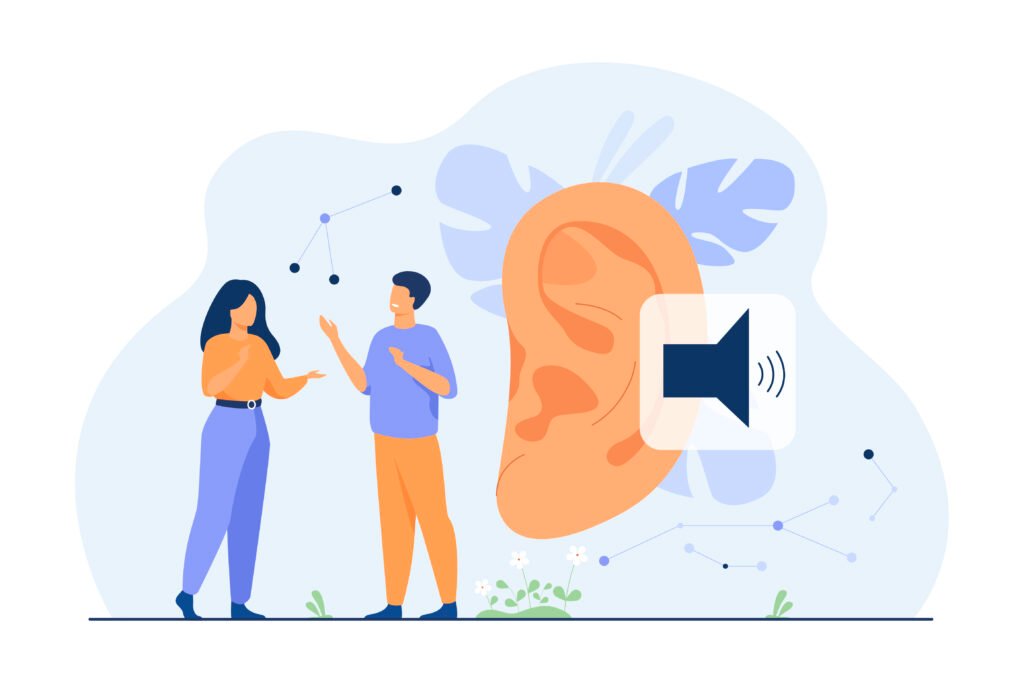
In today’s world, filled with distractions and constant noise, being a good listener is invaluable. Despite its importance, many struggle to engage deeply and give full attention. This blog post explores active listening and its profound impact on relationships and productivity.
Understanding Active Listening To Be A Good Listener
Being a good listener goes beyond hearing words; it entails fully engaging with the speaker both verbally and nonverbally. A good listener is present in the moment, avoids judgment, and shows empathy and understanding. Effective active listening fosters deeper connections, improves communication, and builds trust in personal and professional relationships.
The Benefits of Active Listening
The benefits of active listening extend far beyond improved communication. Here are just a few ways that mastering this skill can positively impact your life:
- Enhanced Relationships: Active listening strengthens relationships by fostering trust, empathy, and understanding. When people feel heard and valued, they are more likely to open up and share their thoughts and feelings, deepening the connection between them.
- Improved Conflict Resolution: By truly listening to others’ perspectives and understanding their needs and concerns, active listening lays the foundation for effective conflict resolution. Rather than escalating disagreements, active listening can help parties find common ground and work toward mutually beneficial solutions.
- Increased Productivity: In a professional setting, active listening can boost productivity by minimizing misunderstandings, clarifying expectations, and fostering collaboration. When team members feel heard and understood, they are more motivated to contribute their ideas and work together toward shared goals.
- Personal Growth: Active listening promotes personal growth by challenging assumptions, expanding perspectives, and fostering empathy. By actively engaging with others’ ideas and experiences, we gain valuable insights into ourselves and the world around us, leading to greater self-awareness and personal development.

Practical Tips for Practicing Active Listening
Now that we understand the benefits of active listening, let’s explore some practical tips for incorporating this skill into your daily life:
- Give Your Full Attention: When someone is speaking to you, put away distractions such as phones or laptops and give them your full attention. Maintain eye contact, nod your head, and use nonverbal cues to show that you are engaged and listening.
- Listen Without Interrupting: Resist the urge to interrupt or interject with your own thoughts or opinions. Instead, allow the speaker to finish their thoughts before responding, and avoid formulating your response while they are still speaking.
- Ask Clarifying Questions: If you’re unsure about something the speaker said, don’t hesitate to ask clarifying questions to ensure you fully understand their perspective. Paraphrase what they’ve said to demonstrate that you are actively listening and to clarify any misunderstandings.
- Practice Empathy: Put yourself in the speaker’s shoes and try to understand their thoughts, feelings, and motivations from their perspective. Show empathy and validation by acknowledging their emotions and experiences without judgment.
- Reflective Listening: Reflective listening involves paraphrasing what the speaker has said to ensure you’ve understood correctly and to demonstrate empathy and understanding. Use phrases like “What I hear you saying is…” or “It sounds like you’re feeling…” to reflect back their words and emotions.
The Power of Listening as A Good Listener
In today’s fast-paced world, mastering active listening can distinguish you and enhance relationships and productivity. Being a good listener involves giving full attention, showing empathy, and engaging deeply. This approach builds connections, resolves conflicts effectively and boosts success in both personal and professional realms.
So the next time you find yourself in a conversation, remember the power of listening—and watch as it transforms your world.